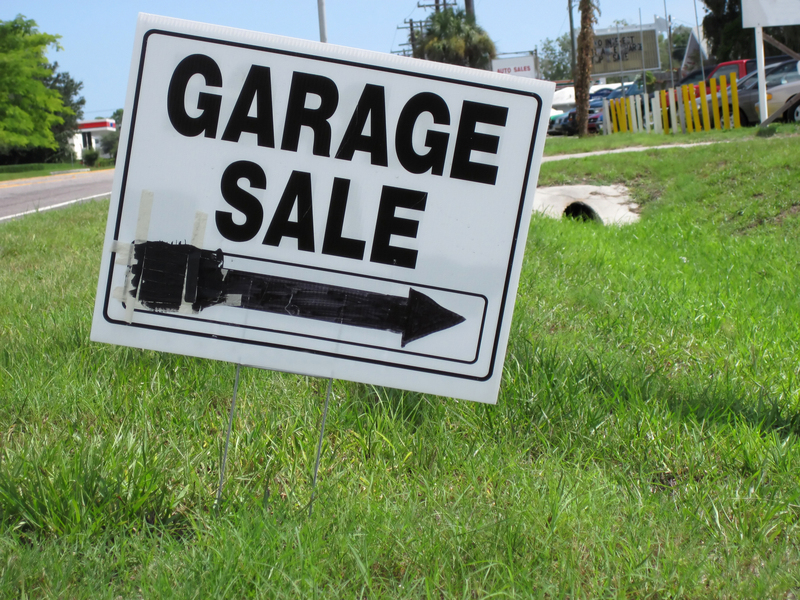Slash Your Costs When Handling Bulky Waste Items
Do you have old sofas, broken appliances, or large piles of yard debris clogging up your space? Bulky waste items are notorious budget-busters when it comes to proper disposal. Whether you're a landlord, a homeowner spring cleaning, or running a business, managing bulky waste removal can be overwhelming--physically and financially! But don't worry: in this comprehensive guide, you'll learn practical, actionable tips to slash your costs when handling bulky waste items--saving you time, money, and hassle.

Understanding Bulky Waste: What's Included?
Bulky waste items typically refer to materials too large for regular curbside collection. Recognizing what falls under this category helps you strategize smarter disposal. Typically, bulky waste includes:
- Sofas, armchairs, and mattresses
- Large appliances (fridges, washing machines, ovens)
- Garden waste (tree branches, old sheds, fencing)
- Old carpets and rugs
- Exercise equipment and bicycles
- Construction debris (rubble, toilets, bathtubs)
Why does this matter? Bulky items require special handling because of their size, materials, and potential hazards. Disposal fees and labor can mount up quickly--unless you know how to cut costs!
The True Cost of Bulky Waste Disposal
Before exploring ways to save, let's break down the main costs associated with bulky waste item disposal:
- Municipal fees--charged by the city or waste management
- Rental of dumpsters or skip bins
- Labor costs for hauling and loading
- Transportation to recycling centers or landfills
- Potential environmental surcharges for hazardous materials
__Ignoring these factors can result in unexpected bills. But there are proven strategies to minimize your spend while still staying compliant and eco-friendly.__
Top Strategies to Slash Bulky Waste Removal Costs
1. Separate, Sort, and Assess
One of the biggest mistakes people make is lumping all bulky waste together. Before booking a collection or hiring a skip, separate items into:
- Reusable or donatable goods
- Recyclables (metal, wood, certain plastics)
- Hazardous waste (fridges with CFCs, electronics)
- General landfill rubbish
Sorting can reduce disposal costs by allowing you to take advantage of free recycling centers, charity pickups, or even resell items. Plus, it helps avoid fines for mixing hazardous substances.
2. Explore Free or Low-Cost Pickup Services
Many municipalities offer annual bulky waste pickup days or allow households a set number of free collections per year. Check your council or city's website (some require booking in advance). Additionally, organizations like the Salvation Army or Habitat for Humanity ReStores often collect furniture and working appliances for free.
- Tip: Call ahead to confirm what items they accept.
Not eligible for city services? Look for local non-profits and community swap days--these are great for offloading items still in usable condition.
3. Rent Smarter--Share Skips or Dumpsters
If you have a considerable amount of bulky household junk, a skip or dumpster is convenient. But hiring one solo can be expensive.
- Share a skip with neighbors, friends, or other businesses. Splitting the bill dramatically lowers individual costs!
- Book the smallest size necessary--overestimating leads to higher fees.
Always compare prices across providers. Some may offer discounts for pre-sorted loads or mid-week bookings.
4. Sell, Donate, or Repurpose When Possible
It's surprising how often "bulky waste" is simply "unwanted stuff." Before disposing:
- List items on local marketplace sites--you may get rid of them for free, or even make money.
- Contact shelters or charities
- Repurpose: Old wood can become garden planters, tires can be used for landscaping
By diverting items from landfill, you significantly reduce what needs to be hauled away--slashing removal costs!
5. DIY Drop-Off (Where Legal and Safe)
If you own a suitable vehicle, many recycling centers and transfer stations allow residents to dispose of certain bulky waste types for free or minimal fees. This is especially cost-effective for:
- Metals and appliances
- Electronics (when e-waste centers are available)
- Garden and green waste
Remember: always check what facilities accept and whether you need proof of residency. Never dump illegally--fines for fly-tipping are severe and negate any savings!
6. Negotiate Bulk Collection Rates
If you have ongoing commercial bulky waste needs (for example, as a property manager or retailer), negotiate custom rates based on volume and regularity. Most waste companies offer tiered pricing that can be much lower than ad-hoc pickups.
- Get multiple quotes--having options boosts your bargaining power.
7. Reduce at the Source
Ultimately, the best way to cut bulky waste costs is to generate less waste in the first place. This can be achieved by:
- Buying higher-quality, longer-lasting materials
- Repairing instead of replacing whenever possible
- Leasing equipment or furniture instead of owning
- Choosing recyclable or modular products for easy separation
Environmentally Friendly Bulky Waste Solutions
Today's consumers and businesses are increasingly conscious of environmental impact. Sustainable bulky waste management isn't just good for the planet--it can also save you money.
- Look for green waste providers: Companies specializing in recycling, upcycling, or responsible disposal often charge less for sorted waste than for mixed trash.
- Utilise your local council's recycling initiatives: Many councils now recycle mattresses, whitegoods, and more, sparing you landfill charges.
- Participate in e-waste programs: Electronics contain valuable materials that professional recyclers will often collect for free or even pay for.
These options not only cut your bulky waste costs but help protect the environment for future generations.
Common Bulky Waste Mistakes That Cost You More
To maximize your savings, avoid these all-too-common pitfalls when handling large and bulky waste items:
- Poor planning: Waiting until the last minute means rushed, expensive solutions.
- Ignoring local regulations: Illegal dumping or improper sorting can result in hefty fines.
- Overfilling skips or dumpsters: Exceeding volume limits leads to surcharges.
- Disregarding hidden hazards: Items like old fridges or mattresses may require specialist disposal--plan ahead to avoid premium fees.
- Missing free or reduced-cost services: Not checking all available options can waste hundreds of dollars unnecessarily.
How Technology Can Help Slash Bulky Waste Removal Costs
Modern tech solutions can make bulky waste management less costly and more efficient. Use online platforms to:
- Compare prices from local haulers
- Book and schedule pickups instantly
- Track collection and receive reminders (avoid forgotten items incurring extra charges!)
- Join community "freecycle" or sharing groups to give items away
Many apps and websites cater to both residential and commercial users--maximizing savings and convenience.
Case Study: Successful Bulky Waste Cost Reduction
To illustrate, let's consider a common scenario. "Emma, a landlord, needed to clear out a rental unit after tenants moved out, leaving behind two sofas, a fridge, an old mattress, and some yard debris."
- First, Emma contacted her local council and learned she was eligible for one free bulky item pickup per year.
- The fridge was classified as e-waste, so she scheduled a separate free collection with a local recycler.
- She listed the sofas on a neighborhood freecycling group, and one was collected for reuse--saving on disposal fees.
- Emma shared the cost of a small skip with the property next door to dispose of the mattress and debris, cutting her bill in half.
- Total cost: ?50--versus ?220 for a standard junk removal quote!
This example shows that a little research and smart planning can dramatically reduce the expense of disposing of bulky waste items.

Checklist: How to Slash Your Bulky Waste Costs
- Sort items by type and identify what can be sold, donated, or recycled
- Check your local council's free or discounted collection options
- Contact charities and non-profits for free removal of usable goods
- Share dumpsters or skips when possible
- Use online platforms to find the best rates and book environmentally responsible companies
- Follow local guidelines to avoid fines and extra fees
Conclusion: Save Money, Stay Green, and Keep Your Space Clear!
Handling bulky waste items doesn't need to break the bank. With smart planning, local resources, and creative approaches, you can slash your bulky waste costs while staying environmentally responsible.
Implement the proven tips above to free up space, avoid unnecessary expenses, and contribute to a cleaner community. Next time you face a clutter conundrum, remember: bulky waste clearance can be cheap and easy when you know how!
For ongoing advice and expert tips on affordable bulky waste disposal, bookmark this guide and share it with friends, neighbors, or fellow business owners. Your wallet--and the planet--will thank you.
